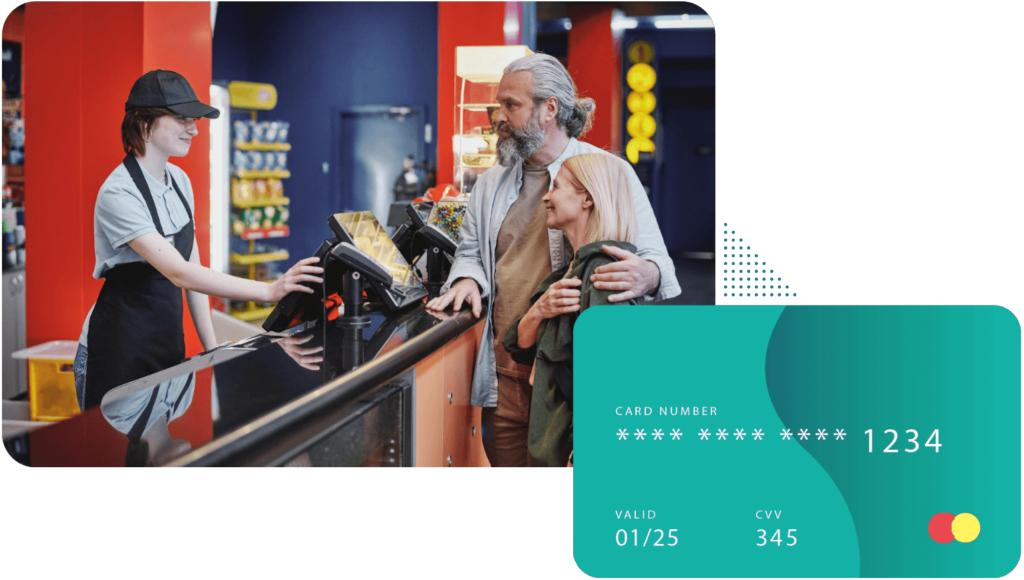Revolutionizing Coffee Business: A Complete Guide to Coffee Shop POS System
A Point of Sale (POS) system for coffee shops is a combination of software and hardware that manages sales transactions, inventory, customer relationships, and business analytics. Essential in today’s fast-paced coffee culture, a robust POS system provides a seamless interface for both customers and staff.
It streamlines operations, enhances customer service, and offers comprehensive data analysis, enabling business owners to make informed decisions. ne of modern retail operations, ensuring efficiency and profitability.
Modern POS systems offer significant advantages over traditional cash registers or basic electronic systems. Firstly, they provide real-time insights into sales trends, inventory levels, and customer preferences, facilitating data-driven decision-making.
They also support omnichannel sales, including in-store, online, and mobile transactions, meeting customers where they are. Lastly, cloud-based systems offer the flexibility to manage the business remotely, providing up-to-date information at your fingertips, which is invaluable in today’s dynamic business environment.
Understanding Coffee Shop POS Components
In the bustling world of coffee businesses, selecting the right Point of Sale (POS) system is pivotal. Restaurant POS services comprise several integral components that work in concert to streamline operations, enhance customer service, and bolster sales in coffee shops.
Below, we dissect these components into three main categories: Hardware Components, Software Components, and Integration with Existing Systems.
Hardware Components
The hardware aspect of a cafe POS system encompasses the physical devices essential for the transaction process. Key hardware components include:
POS Terminals
They are the heart of the POS system, these can be traditional desktop computers or mobile devices such as tablets.
Cash Drawers
A secure place to store cash transactions.
Receipt Printers
For printing customer receipts or orders for the kitchen/barista.
Barcode Scanners
To quickly add products to the sale by scanning.
Card Readers
To process payments made with credit or debit cards, including contactless and chip-and-PIN transactions.
Software Components
The software serves as the brain behind the operation, managing everything from sales transactions to inventory management. Software components include:
Sales Interface
The user interface for the baristas, making it easy to add items to a sale, apply discounts, and process payments.
Inventory Management
Tracks stock levels in real time, helping to manage supplies and ingredients efficiently.
Customer Relationship Management (CRM)
Stores customer information and purchase history, useful for loyalty programs and targeted marketing.
Reporting and Analytics
Provides insights into sales trends, peak hours, and individual employee performance, enabling better business decisions.
Integration with Existing Systems
For a seamless operation, the coffee shop POS technology must be able to integrate with a coffee shop’s existing systems, such as:
Accounting Software
Automatic syncing with accounting software ensures real-time financial tracking and aids in easier tax preparation.
Online Ordering Systems
Integration here allows for the smooth processing of orders placed online, aligning with in-store operations.
Employee Scheduling Tools
Ensures staff schedules are in harmony with sales data, optimizing staffing needs based on busy or slow periods.
Choosing a POS system with the correct combination of hardware, software, and integration capabilities can revolutionize how a coffee shop operates, leading to improved efficiency, a better customer experience, and ultimately, increased profitability.
Choosing the Right Coffee Shop POS System
Choosing the right Coffee Shop Point of Sale (POS) system is crucial for the seamless operation and growth of your business. Here are some essential factors to consider:
Assessing Business Needs
Understanding what your business specifically requires from a POS system is the first step in choosing the right one.
the size of your operation, the volume of transactions, inventory management needs, and whether you need features such as customer loyalty programs or integration with online sales. A tailor-fit POS system enhances efficiency and serves customers better.
Budget Considerations
Your budget plays a significant role in determining which POS system you can afford. However, it’s important to view this technology as an investment rather than just an expense.
Cheaper systems might save money in the short term but can cost more in the long run through additional fees, less functionality, or inadequate support. Consider both upfront costs and long-term expenses when making your choice.
Scalability and Future Growth
The chosen POS system should not only meet current needs but also have the capacity to grow with your business. Scalability is essential as your volume of sales, number of products, and customer base expand.
Ensure the system can handle increased transactions, new locations, and additional features or modules you might need in the future without significant disruptions or the need for a completely new system.
Top Coffee Shop POS Systems in the Market
In exploring the competitive landscape of coffee shop Point of Sale (POS) systems, it’s crucial to examine the top contenders in the market through a multifaceted lens. This involves:
Comparison of Leading POS Providers
Leading POS systems for coffee shops vary widely, with companies like Square, Toast, and Clover leading the pack.
Each provider offers unique benefits, from Square’s user-friendly interface and flexible pricing to Toast’s robust restaurant-specific functionalities and Clover’s highly customizable hardware and software options. Comparing these providers entails looking at cost, ease of integration, customer support, and specific features tailored to the coffee shop niche.
Features and Functionality Analysis
Key features to consider in a coffee shop POS system include order management, inventory tracking, customer loyalty programs, and mobile ordering capabilities.
Additionally, the ability to integrate with other tools such as accounting software, CRM systems, and delivery platforms can significantly enhance operational efficiency.
Analyzing these features involves assessing how each POS system can streamline daily operations, improve customer experience, and support business growth.
Customer Reviews and Satisfaction Ratings
Customer reviews and satisfaction ratings offer invaluable insights into the real-world performance of various POS systems.
By examining feedback from coffee shop owners and managers, prospective buyers can gauge the reliability, customer service, and overall value of each POS option.
High satisfaction ratings typically indicate a POS system that meets or exceeds user expectations in functionality, support, and ease of use, making this metric a critical component of the decision-making process.
Implementing a Coffee Shop POS System
Implementing a coffee shop POS system is a transformational step that requires attention to detail in three key areas: the installation process, staff training and support, and troubleshooting and maintenance.
Installation Process
The installation of a POS system in a coffee shop involves several critical steps, starting with selecting the right hardware that can withstand the cafe environment’s demands. This includes durable touchscreens, receipt printers, and cash drawers.
Following hardware selection, the software needs to be installed and configured to match the coffee shop’s menu, pricing, and tax rates. Integration with other systems, such as inventory management and customer loyalty programs, is also crucial for seamless operation. Ensuring secure network connectivity will protect financial transactions and customer data.
Staff Training and Support
Effective staff training and comprehensive support are vital for the success of the POS system implementation. Training should cover all functionalities of the POS software, including order taking, processing payments, managing refunds, and handling customer inquiries.
Additionally, staff should be familiar with basic troubleshooting steps to address minor system issues. Continuous support from the POS system provider, through training materials, online resources, and direct assistance, ensures that the coffee shop staff can confidently use the system and adapt to any updates or changes.
Troubleshooting and Maintenance
Regular troubleshooting and maintenance are critical to keep the coffee shop POS system running smoothly. This includes routinely checking hardware components for wear and tear, updating software to the latest version to ensure security and efficiency, and backing up data to prevent loss in case of system failures.
Establishing a relationship with a reliable POS system provider who offers prompt technical support is invaluable for quickly resolving any system issues that may arise, minimizing any disruption to business operations.
Leveraging Features for Efficient Operations
To revolutionize the coffee business, understanding and leveraging the key features of a Coffee Shop POS (Point of Sale) system are crucial. These systems are designed not just to process sales but to enhance every aspect of coffee shop operations through efficient management and detailed insights.
Order Management and Customization
A modern Coffee Shop POS system streamlines order management by allowing staff to process orders more quickly and accurately. This includes handling custom orders wherein customers can specify their unique preferences for coffee blends, milk types, and add-ons.
The ability to customize orders directly on the POS interface significantly reduces the chances of errors, ensuring that customers receive their preferred beverages exactly as they like them. This feature also speeds up the service time, enhancing customer satisfaction and loyalty.
Inventory Management and Tracking
Inventory management and tracking are critical for maintaining the smooth operation of a coffee shop. A comprehensive POS system offers features that allow for real-time tracking of inventory levels, including coffee beans, milk, and other ingredients.
This capability ensures that stock levels are sufficient, alerts are generated when supplies are low and helps in making informed purchasing decisions. By closely monitoring inventory, coffee shop owners can reduce waste, manage costs more effectively, and ensure they are always ready to meet customer demand.
Analytics and Reporting Tools
Analytics and reporting tools within a Coffee Shop POS system provide invaluable insights into business performance. These tools can track sales trends, most popular items, peak service times, and customer preferences, among other metrics.
By analyzing this data, coffee shop owners and managers can make data-driven decisions to optimize product offerings, promotional strategies, and staffing. Additionally, such detailed reports can identify areas for operational improvement, helping to streamline processes and increase profitability.
Enhancing Customer Experience with POS Systems
Today’s coffee shop landscape is fiercely competitive, and the key to standing out among the myriad of options is to offer an exceptional customer experience. Point of Sale (POS) systems play a pivotal role in transforming customer service dynamics in several impactful ways.
Loyalty Programs Integration
Loyalty programs are a powerful tool for encouraging repeat business, and integrating these programs directly into your POS system streamlines the process beautifully. Customers can earn rewards and discounts effortlessly with every purchase, directly through the system.
This seamless integration means no additional cards to carry or numbers to remember; everything is tied to their profile, making them feel valued and encouraging their loyalty.
Mobile Ordering and Payment Options
The convenience of mobile ordering and payment cannot be overstated. A POS system that supports these features caters to the growing demand for quick and easy transactions.
Customers can order from anywhere, skip the line, and enjoy their favorite coffee blends without the wait. This not only enhances the customer experience but significantly boosts efficiency during peak hours.
Personalization and Customer Relationship Management
A sophisticated POS system can store and analyze customer preferences, enabling a highly personalized service. Whether it’s remembering a regular’s favorite drink or suggesting new products based on past purchases, this level of personalization deepens the customer relationship.
It makes patrons feel special and seen, fostering a sense of loyalty and connection to your brand. Furthermore, leveraging this data for targeted marketing campaigns can turn occasional visitors into regulars.
In conclusion, upgrading to a modern POS system that encompasses loyalty program integration, mobile ordering, and personalized customer relationship management is a game-changer for coffee shops aiming to enhance their customer experience and, ultimately, their success.
Security and Compliance Considerations
In the realm of the coffee shop business, implementing a Point of Sale (POS) system not only accelerates transactions but introduces significant responsibilities regarding security and compliance. Here is a breakdown of key considerations:
Payment Card Industry Data Security Standard (PCI DSS)
Compliance with the PCI DSS is paramount for any coffee shop operating a POS system. This global standard ensures the protection of cardholder data, reducing the risk of financial fraud.
Coffee shops must ensure their POS systems are PCI compliant, safeguarding customer payment information from unauthorized access. Regular audits and updates are essential to maintain compliance and secure customer trust.
Data Encryption and Protection Measures
To further secure transaction data, advanced data encryption and protection measures must be integrated into the POS system. Encryption technology scrambles data during transmission, making it unreadable to anyone outside of the transaction process.
Additionally, implementing robust access controls and firewalls helps protect sensitive data stored within the system, shielding it from cyber threats and breaches.
Regulatory Compliance in the Coffee Industry
Beyond payment security, coffee shop owners must also adhere to regulatory standards specific to the coffee industry. This includes health and safety regulations, employment laws, and food service certifications.
Ensuring the POS system is configured to support compliance in these areas—such as tracking employee hours for labor law compliance or managing inventory for health inspections—can streamline operations and mitigate legal risks.
By prioritizing these security and compliance considerations, coffee shop owners can ensure their business operates smoothly, maintains customer trust, and adheres to legal standards, setting the foundation for long-term success.
Trends and Innovations in Coffee Shop POS Systems
The coffee shop landscape is evolving rapidly, leveraging technology to enhance operational efficiency and customer experience. Among the forefront of these advancements are Trends and Innovations in Coffee Shop POS (Point of Sale) Systems, which are detailed below:
AI and Machine Learning Applications
Artificial Intelligence (AI) and Machine Learning are transforming coffee shop POS systems into smart hubs that not only process transactions but also provide valuable insights and predictive analytics.
These technologies enable personalized customer service by remembering customer preferences and order history, thus improving the speed and accuracy of service.
Additionally, AI can optimize inventory management, predicting stock levels based on historical sales data, weather forecasts, and other variables, reducing waste and ensuring that popular items are always available.
Contactless and NFC Payment Technologies
The demand for contactless and Near Field Communication (NFC) payment options has surged, driven by customers’ desire for quicker, safer payment methods.
These technologies allow customers to pay with a simple tap of their credit card, smartphone, or smartwatch, significantly speeding up the checkout process. For coffee shops, this means shorter lines, happier customers, and an increase in the potential volume of transactions during peak business hours.
Cloud-Based Solutions for Mobility and Accessibility
Cloud-based POS systems are offering unprecedented flexibility and accessibility for coffee shop owners. With data stored in the cloud, business operators can access real-time information from any device with an internet connection, allowing for remote management of sales, inventory, and staff schedules.
This mobility is critical for owners who operate multiple locations or wish to manage their business on the go. Furthermore, cloud solutions facilitate easier updates and integrations with other tools and services, ensuring that the POS system remains cutting-edge.
These innovations in POS technology are not just transforming the way coffee shops operate; they are redefining the customer experience, offering a seamless blend of convenience, personalization, and efficiency.
Conclusion
Throughout this guide, we’ve explored the integral role a Point of Sale (POS) system plays in the modern coffee shop business. From streamlining operations and improving customer service to providing essential business insights through sales and inventory tracking, a robust POS system is indispensable.
We’ve discussed the various features that are crucial for a coffee shop POS, including order management, inventory control, customer relationship management, and reporting and analytics capabilities.
For coffee shop owners venturing into or currently navigating the coffee business landscape, selecting the right POS system is pivotal. Look for a system that not only meets your current needs but is also scalable for future expansion. Prioritize ease of use, reliability, and comprehensive support from the provider.
Investing in a system that integrates seamlessly with other tools such as accounting software, digital menu boards, and online ordering platforms can significantly enhance operational efficiency and customer satisfaction.
The future of coffee shop POS systems is poised for continual innovation, with advancements in technology further simplifying and enriching the coffee shop experience for both owners and customers. Anticipate enhancements in mobile payments, loyalty programs, and even AI-driven customer service solutions.
Staying abreast of these developments and being open to adopting new features will ensure your coffee shop remains competitive and capable of delivering exceptional service in an ever-evolving market.









